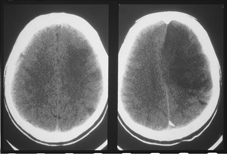Asthma genetics paving the way for new approaches to care
Asthma is the most common chronic disease in children in the United States today, with prevalence and severity of the disease escalating over the past 20 years. It's a disease in which genetic and environmental factors combine in ways that are still poorly understood. Genomics, molecular biology and immunology are changing the way physicians think about the condition.
When you think about the younger patients in your outpatient practice, what is the most common chronic disease that you diagnose and treat? In many settings asthma is near the top of the list. In fact, asthma is the most common chronic disease in children in the United States today, and genomic discoveries, along with insights derived from molecular biology and immunology, are changing the way we think about the condition.
Asthma is a condition in which genetic and environmental factors combine to cause disease in ways that are still poorly understood. Despite advances in diagnosis and treatment of asthma, the prevalence and severity of the disease have continued to escalate over the past 20 years.

In 2007, an estimated 3.8 million children suffered an asthma attack or episode. Asthma is estimated to incur about $19.7 billion in direct and indirect costs to the U.S. economy, according to the National Heart, Lung and Blood Institute Chartbook, 2007. Patients, clinicians, employers, and insurers would all welcome improved approaches for risk prediction, prevention and disease management.
One-third of patients who have asthma have a family history of this condition, and a positive family history is a better predictor of asthma risk than currently identified genetic markers. This is at least in part because family history captures shared environmental risk factors, such as exposure to allergens and second-hand smoke, but it is also because we are only now beginning to dissect the genomic underpinnings of the condition. Though obtaining a family history is a rational first step to identifying at-risk individuals, the positive predictive value conferred by a family history of a first-degree relative with asthma is still quite low (less than 40%).
An intriguing example comes from a 2009 study by Thomsen et al., published in the American Journal of Respiratory and Critical Medicine, which examined the association between severity of respiratory syncytial virus (RSV) infection and asthma in 8,280 pairs of twins. The study found evidence that hospitalization for an RSV infection is an indicator of a genetic predisposition to asthma and, importantly, that RSV infection did not appear to be causal of asthma.
Multiple lines of evidence suggest that asthma is actually a group of diseases rooted in overlapping pathologies that affect the airways. Recent genome-wide association studies have identified a number of novel genetic markers contributing to asthma susceptibility. One or more of these may eventually yield insights on new preventive measures or therapies. For example, recent discoveries suggest that variations in the CHI3L1 gene encoding the chitinase-like protein YKL-40 are associated with asthma. These variations correlate with serum levels of the protein (which is thought to play a role in inflammation) and asthma severity. Identification of variations in the CHI3L1 gene could represent a first step in creating novel asthma treatments targeting novel mechanisms of disease.
Genome-wide association studies are also being employed to unravel the pharmacogenomics of asthma drug responsiveness. Multiple genetic variants in a wide variety of genetic pathways have been associated with responses to the major classes of asthma drugs, including bronchodilators, inhaled corticosteroids and leukotriene inhibitors. One could easily envision the creation of inexpensive gene chips capable of simultaneously measuring the hundreds of genetic variations in an individual's DNA that are predictive of asthma drug metabolism and responsiveness. Clinical trials to examine the utility of pharmacogenomic testing as part of asthma care are ongoing.
What does this mean for your patients and your practice? On the horizon are more individualized approaches to risk prediction, prevention, diagnosis and treatment of asthma. Integration of these advances for the individual, along with public health strategies for populations, offers the promise of diminishing the burden of individual suffering as well as the societal economic toll of asthma in the decade to come.



